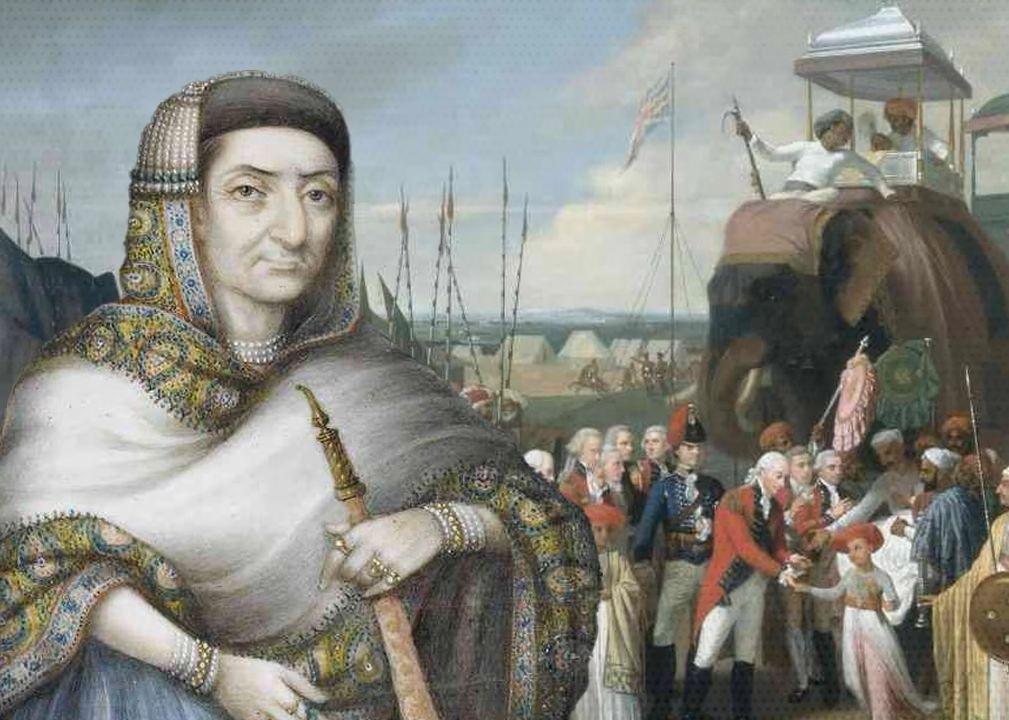
Women Entrepreneurs in Indian History: Begum Samru & Jibhabu
In a society where women’s roles were often limited to domestic duties, two remarkable women, Begum Samru and Jibhabu, defied conventions and made their mark as successful entrepreneurs in 18th and 19th century India. Through their exceptional leadership skills, financial acumen, and strategic thinking, they not only built thriving businesses but also left an indelible mark on Indian history.
Begum Samru: The Ruler of Sardhana
Born as Imhoffa in 1753, Begum Samru was a German woman who converted to Islam and became the ruler of a 621-square km estate in Sardhana, present-day Uttar Pradesh. Her journey to the throne was marked by a series of events that showcased her diplomatic skills and strategic thinking.
Samru began her journey as a courtesan, serving the ruling Nawab of Awadh. However, she quickly gained the trust of the Nawab and his successor, who appointed her as the Governor of Sardhana. When the Nawab died, Samru seized the opportunity to assert her claim to the throne, using her diplomatic skills to negotiate with the British East India Company and secure her position.
Samru’s reign was marked by her ability to maintain a delicate balance between the British and the Indian rulers. She played a crucial role in mediating conflicts and ensuring the stability of her kingdom, earning her the respect and admiration of her contemporaries. Her leadership and financial acumen helped her build a thriving business empire, which included trade, agriculture, and infrastructure development.
Jibhabu: The Negotiator
Born in 1795, Jibhabu was a Gujarati woman who hailed from a family of merchants. Her family’s land revenue business was facing significant challenges in the early 19th century, with the East India Company exerting its influence over the region. Jibhabu saw an opportunity to restore her family’s business and took the bold step of negotiating with the Company.
Jibhabu’s negotiation skills and strategic thinking helped her secure a favorable agreement with the East India Company, which allowed her family to continue their land revenue business. Her success not only ensured the financial stability of her family but also earned her the respect of the British and the Indian rulers.
What Can We Learn from these Pioneering Women?
The stories of Begum Samru and Jibhabu offer valuable lessons for women entrepreneurs today. Both women demonstrated exceptional leadership skills, financial acumen, and strategic thinking, which enabled them to overcome the challenges they faced.
Firstly, they showed that women can be effective leaders, even in a patriarchal society. Their ability to navigate complex relationships, negotiate with powerful entities, and build successful businesses serves as a testament to their capabilities.
Secondly, they demonstrated the importance of financial literacy and strategic thinking. Begum Samru’s ability to manage her kingdom’s finances and Jibhabu’s negotiation skills with the East India Company highlight the need for women entrepreneurs to develop these skills.
Lastly, their stories serve as a reminder that women can thrive in any field, regardless of the obstacles they may face. By defying societal norms and pursuing their goals with determination and perseverance, Begum Samru and Jibhabu left lasting legacies in Indian history.
Conclusion
The stories of Begum Samru and Jibhabu serve as a powerful reminder of the impact that women can have on Indian society and history. Their leadership, financial expertise, and strategic thinking enabled them to build successful businesses and leave a lasting legacy. As we celebrate their achievements, we are reminded of the importance of empowering women entrepreneurs and creating an environment that supports their growth and success.
Source:
https://ascendants.in/business-stories/pioneering-women-entrepreneurs-history/



